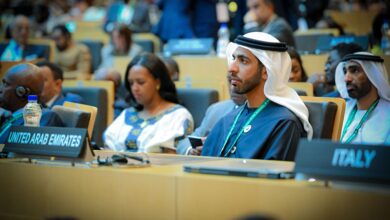Kuwait Stock Exchange gains 593 new investment accounts in 2024
Foreign companies, funds, and institutions have increased their ownership in the KSE, particularly with shares expected to join the first market, driven by promotions and the market’s inclusion in global emerging market indices.

• Five major stocks, including KFH, NBK, Agility, EVA, and Gulf Bank, have collectively accounted for around KD 4.42 billion in trades on Kuwait Stock Exchange accounts since the start of the year.
International investment institutions have recently intensified their focus on the Kuwait Stock Exchange(KSE), boosting their strategic ownership in a range of shares listed on the main market, alongside strengthening their long-term positions in the first market.
A follow-up by Al-Rai newspaper revealed that external institutions and funds are monitoring new targets through trustees and specialized entities, in accordance with a set of requirements. The process has already begun to prepare for the introduction of large quantities of company shares into their portfolios in the coming period. This is in light of reviews of the stock exchange’s performance and through active institutions that keep pace with daily trading. The following requirements are included:
- The company follows a stable investment and business model.
- Growth in annual rates of return achieved.
- Stock liquidity and the ability to exit at any time.
- Existence of an industry market with supply and demand coverage for stocks.
- Stocks with relatively high market value, ensuring market returns through daily transactions.
- Companies that do not rely on a limited register of shareholders or major owners.
- No corporate issues related to financial fluctuations or complex legal problems that may put the company at risk.
- Availability of a diverse asset network capable of benefiting the company in times of crisis.
- No restrictions on foreign ownership of the company’s shares.
- Availability of clear and explicit mechanisms to preserve the rights of the company’s shareholders.
The sources pointed out that there are general standards and requirements related to providing a market and regulatory environment that ensures fair and non-harmful treatment of shareholders’ rights.
The process of registering international investors, among other factors, requires the presence of an intermediary equipped to handle the necessary requirements and foreign investments.
They stated that companies should be allowed to apply mechanisms such as lending and borrowing shares, short selling, and others. Meanwhile, the capital market system, represented by the Capital Markets Authority, the Kuwait Stock Exchange, and ‘Clearing,’ has focused most of its attention in recent times on creating an environment that attracts foreign investments to the Kuwaiti market under the umbrella of advanced emerging market indicators.
According to confirmed information, “there is ongoing communication between the relevant market authorities and international funds regarding the developments in the market system, as well as the readiness of the exchange to potentially increase its weight in global emerging market indicators in the coming period.”
The reports added that the chances of listing the stock exchange on the ‘developed emerging’ market index are high, but this requires general procedures outside the stock exchange, as well as rules that allow foreigners to expand their investments without obstacles.
Regarding the presence of international companies, funds, and institutions on the Kuwait Stock Exchange, official reports confirmed that foreigners, with their various accounts, have strengthened their ownership in the main market—especially with shares expected to join the first market. This is driven by factors related to promotions and the Kuwaiti market’s accession to global emerging market indices.
The exchange received about 593 new institutional and investment accounts since the beginning of the year, including 163 institutions, banks, and companies.
Five major shares, including KFH, NBK, Agility, EVA, and Gulf Bank, accounted for approximately KD 4.42 billion in funds traded on these accounts during the period. The largest portion went to KFH, which accounted for KD 1.747 billion, followed by NBK with KD 852.3 million, out of a total of KD 12.26 billion through the most recent closures.












